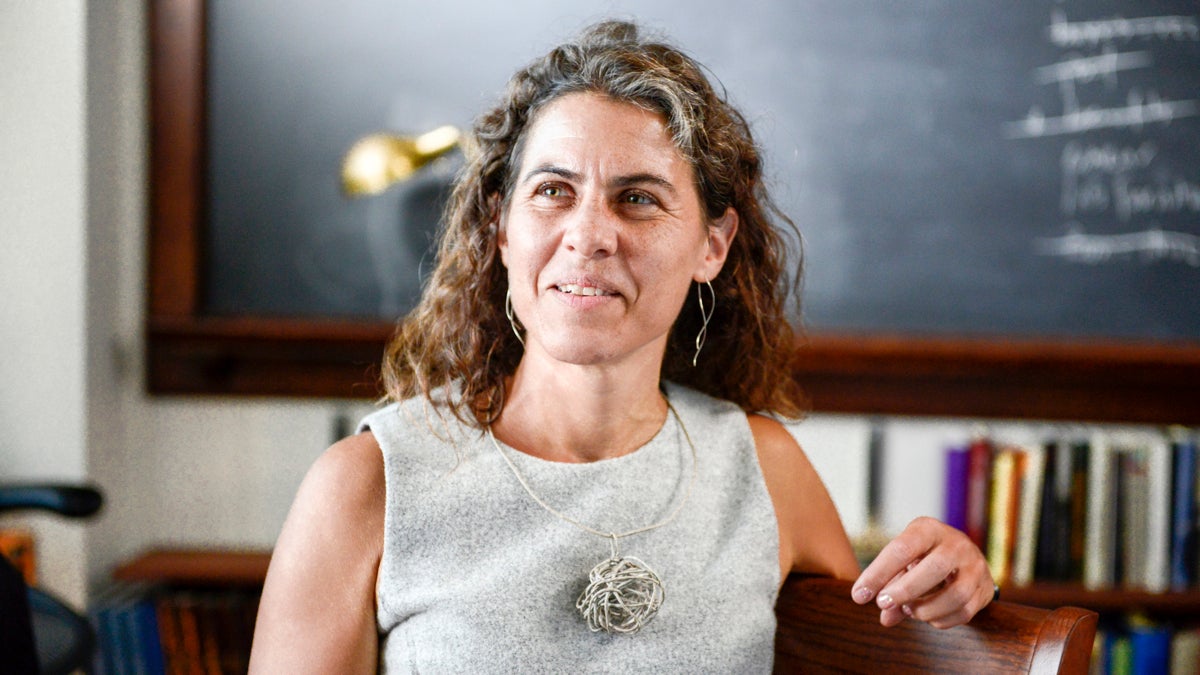Princeton historian wins MacArthur grant for study of Jewish life in medieval Cairo

Princeton University professor Marina Rustow is a social historian of the medieval Middle East, working primarily with sources from the Cairo Geniza, a cache of more than 300,000 folio pages preserved in an Egyptian synagogue. (Image courtesy of MacArthur Foundation)
Twenty-four fellowships from the MacArthur Foundation — the “genius” grants — have been announced for 2015.
They will be going to a chemist from Berkeley, California, working to tap new sustainable energy sources with nanotechnology; a puppeteer from New York; a journalist in Washington, D.C., who writes about race in America; and the founder of a university in Ghana.
In this region, a fellowship was awarded to Professor Marina Rustow, an historian at Princeton University.
Rustow will receive $625,000 to further her research into Jewish life in medieval Egypt. She learned of the award two weeks ago and had to keep mum until now.
“The embargo period is a challenge. It gives you a chance to process the news,” said Rustow. “It also gives you a chance to remain in denial, which is helpful.”
Rustow has been studying a cache of documents that had been stored in the attic of an Egyptian synagogue for a thousand years. The Cairo Geniza — a collection of 330,000 pages of paper and parchment — contains things superb and mundane, from spiritual texts to petty legal filings.
The trove was discovered in the 19th century by dealers who quickly sold off documents, piecemeal, to collectors. Cambridge University now has two-thirds of the Geniza; the rest is scattered among about 200 libraries and collections around the world.
In the medieval era, a Jewish community lived in Cairo under Islamic rule — the Fatimid Caliphate. It was not always an easy arrangement, but Jews were allowed to petition the Islamic government when there was some sort of conflict. By studying account ledgers and legal decrees in the Geniza, Rustow noticed the Jewish community often asked the government to adjudicate its own, internal conflicts.
“The state — while it didn’t care about particulars of petitions — wanted to keep up an image of being responsive, of meting out justice,” said Rustow. “For me, this is all a form of exertion of power from below. This is a period when we don’t think common subjects had a lot of power, but in fact there was a lot of pushback from the bottom.”
Many documents in the Geniza have both Hebrew and Arabic text on them, side-by-side but unrelated. Rustow took an interest in the documents themselves, not just the information recorded on them. The parchments and papers were recycled and reused.
The Islamic government, writing in Arabic, would produce gargantuan decrees on scrolls, sometimes 30 feet long. Somehow members of the Jewish community would get their hands on them to tear up into scratch paper.
“That made me wonder: how did they get from the chancery in government buildings, into the hands of people who reused them for Hebrew text?” said Rustow. “This question of what to archive and what to jettison — it turns out to be the key to understanding how governments administered large territories.”
Rustow does not yet know how she will use her MacArthur windfall, but would like to make her findings accessible to a popular audience.
WHYY is your source for fact-based, in-depth journalism and information. As a nonprofit organization, we rely on financial support from readers like you. Please give today.





